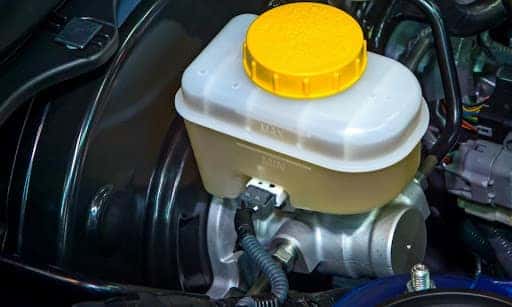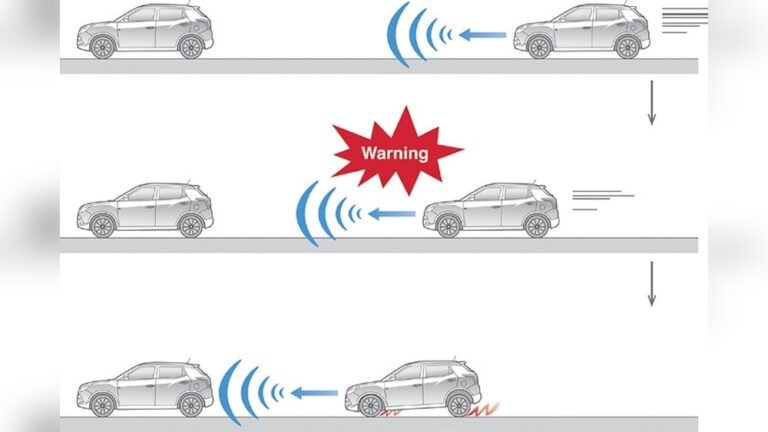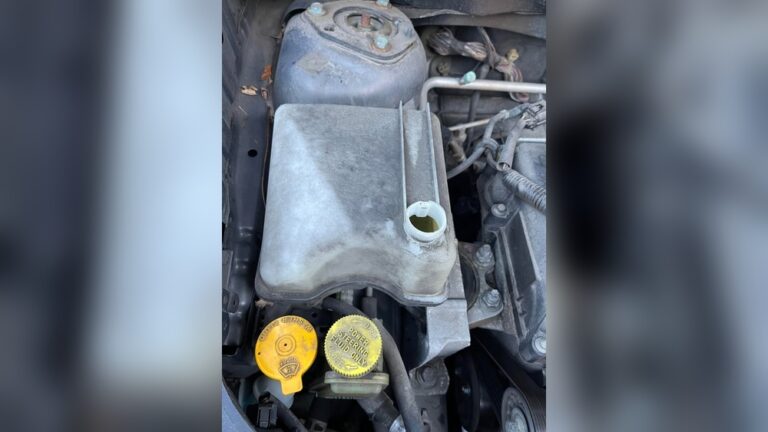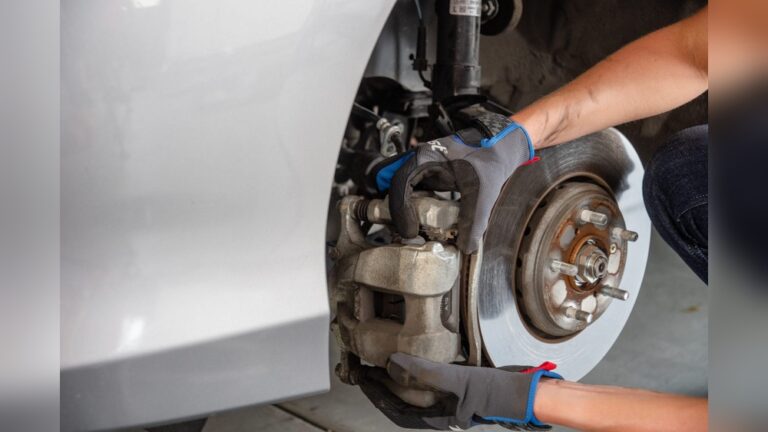Have you ever wondered how long your car’s brake fluid actually lasts? It’s one of those hidden parts of your vehicle that you don’t think about—until it suddenly causes trouble.
Knowing when to check and replace your brake fluid can save you from costly repairs and keep you safe on the road. You’ll discover the signs that your brake fluid is wearing out and learn exactly how often you should change it to keep your brakes working perfectly.
Keep reading to protect your car and yourself with simple, smart maintenance tips.

Credit: marlowautomotive.com
Brake Fluid Basics
Brake fluid is a key part of any car’s braking system. It helps move the force from the brake pedal to the brake parts at the wheels. Without good brake fluid, the brakes may not work well. Knowing the basics about brake fluid helps keep your car safe and running smoothly.
Brake fluid is not just a liquid. It has special properties that help it work under high pressure and heat. Over time, brake fluid can break down or get dirty. This can cause problems with braking. Understanding the types and role of brake fluid is important for every driver.
Types Of Brake Fluid
There are several types of brake fluid. The most common are DOT 3, DOT 4, and DOT 5.1. Each type has a different boiling point and chemical makeup. DOT 3 and DOT 4 are glycol-based fluids. They absorb moisture from the air over time. DOT 5 is silicone-based and does not absorb water. Choosing the right type depends on your vehicle’s needs and manufacturer recommendations.
Role In Vehicle Safety
Brake fluid is vital for safe driving. It transfers the force from your foot on the pedal to the brake parts. This force makes the car slow down or stop. If brake fluid fails, the brakes may feel soft or stop working. Moisture in the fluid lowers its boiling point. This can cause brake failure in hot conditions. Regular brake fluid checks protect you and others on the road.

Credit: www.youtube.com
Factors Affecting Brake Fluid Life
Brake fluid life varies due to several important factors. These factors influence how often you need to change the fluid. Understanding them helps keep your braking system safe and effective.
Driving Conditions
Stop-and-go city driving puts more stress on brake fluid. Frequent braking heats the fluid, causing it to degrade faster. Long highway drives cause less brake stress, so fluid lasts longer. Rough terrain or heavy loads also affect fluid life by increasing brake use.
Climate Impact
Hot climates cause brake fluid to absorb moisture quicker. This reduces its boiling point and effectiveness. Cold weather can thicken brake fluid, slowing its flow. Humid areas increase water absorption, leading to rust and corrosion in the system.
Vehicle Usage
Vehicles used for towing or heavy hauling strain brake fluid more. Older cars may have worn seals, allowing moisture inside. Regular maintenance and brake checks help extend fluid life. Newer cars often have better systems that protect the fluid longer.
Signs Brake Fluid Needs Replacement
Brake fluid plays a vital role in car safety. Over time, it can lose its effectiveness. Knowing the signs that brake fluid needs replacement helps keep your car safe. Watch out for changes in how your brakes feel and perform. Early detection prevents bigger problems and costly repairs.
Warning Indicators
Dark or dirty brake fluid means it has absorbed moisture. Check the fluid color through the reservoir. Cloudy or thick fluid is a clear warning. A burning smell near the brakes may also signal fluid issues. Leaks around the brake lines or reservoir show fluid loss. Low brake fluid levels can cause brake failure. Notice any warning lights on the dashboard related to brakes.
Performance Issues
Soft or spongy brake pedal feels different underfoot. Brakes taking longer to stop is a serious sign. The car may pull to one side during braking. Sudden vibrations when braking can indicate fluid problems. Brake fade happens when the pedal sinks while stopping. These issues suggest the brake fluid needs replacement soon.
Recommended Replacement Intervals
Brake fluid is vital for safe driving. It helps the brake system work well. Knowing when to change brake fluid keeps your car safe. The fluid loses power over time. Changing it at the right time avoids brake failure. Follow these recommended intervals to keep your brakes steady.
Manufacturer Guidelines
Car makers set specific times to replace brake fluid. These times vary by brand and model. Usually, the manual tells you when to change it. Many suggest every 2 to 3 years. Some recommend checking the fluid level often. Always trust the car’s manual for the best advice.
General Timeframes
Most cars need new brake fluid every 2 years. This keeps the fluid fresh and stops moisture buildup. Moisture can cause brake failure and rust parts. Some drivers change it every 20,000 to 45,000 miles. Regular checks help find problems early. Timely changes protect your brakes and your safety.
How To Check Brake Fluid Quality
Checking the quality of brake fluid is important for safe driving. Brake fluid can absorb moisture and lose effectiveness over time. This reduces braking power and can cause damage to brake parts. Regular checks help keep the brake system working well and prevent accidents.
Visual Inspection
Start by opening the brake fluid reservoir under the hood. The fluid should be clear or light amber in color. Dark or cloudy fluid means it is dirty or old. Look for any particles or debris floating in the fluid. Check the fluid level, too. Low fluid might indicate a leak or worn brake pads.
Testing Methods
Use a brake fluid test strip to measure moisture content. Dip the strip into the fluid and wait a few seconds. The strip changes color based on water levels. High moisture means the fluid needs replacement. Some cars have sensors that warn about bad brake fluid. Professional shops can test fluid with special tools for accuracy.

Credit: www.lexusofnorthborough.com
Consequences Of Old Brake Fluid
Brake fluid plays a vital role in your car’s safety. Over time, brake fluid can degrade and absorb moisture. Old brake fluid causes several problems that affect your vehicle’s braking system. Understanding these issues helps you keep your car safe and reliable.
Reduced Braking Efficiency
Old brake fluid loses its ability to transfer pressure well. Moisture in the fluid lowers its boiling point. This can cause brake fade during hard stops. Your brakes may feel soft or spongy. Stopping distances become longer, increasing accident risk. Reduced braking power puts everyone on the road in danger.
Potential Damage
Moisture in old brake fluid causes corrosion inside brake lines. Corroded lines can leak or fail unexpectedly. Brake components like calipers and master cylinders may wear out faster. Repairs become more costly and complicated. Regular brake fluid changes prevent damage and save money. Protect your car’s braking system by replacing fluid on time.
Brake Fluid Maintenance Tips
Brake fluid is vital for your car’s braking system. Proper maintenance keeps brakes working well and safe. Knowing how to care for brake fluid helps avoid costly repairs and accidents.
Regular Inspections
Check brake fluid levels often. Low fluid can cause brakes to fail. Look for dark or dirty fluid. Fresh brake fluid is clear or light yellow. Change the fluid if it looks bad. Also, watch for leaks near the brake lines and reservoir.
Professional Servicing
Have a mechanic check brake fluid during car service. They test fluid quality and replace it if needed. Professionals flush old fluid out and add new fluid. This prevents moisture build-up that can harm brakes. Follow the car maker’s recommended service schedule for brake fluid.
Frequently Asked Questions
How Often Should I Change Brake Fluid In My Car?
Brake fluid should be changed every 2 years or 30,000 miles. This prevents moisture buildup that can reduce braking efficiency and cause corrosion. Regular replacement ensures safe braking performance and prolongs brake system life.
What Happens If Brake Fluid Is Not Replaced Timely?
Old brake fluid absorbs moisture, leading to reduced braking power. It can cause corrosion in brake lines and damage components. Delaying replacement increases the risk of brake failure and costly repairs.
Can I Use Any Type Of Brake Fluid For My Car?
No, always use the brake fluid type specified in your car manual. Different fluids have varying boiling points and chemical properties. Using the wrong type can damage the brake system and compromise safety.
How Can I Check If Brake Fluid Needs Changing?
Check the brake fluid color and level in the reservoir. Dark or murky fluid indicates contamination. Also, if your brakes feel spongy or less responsive, it’s time for a brake fluid change.
Conclusion
Brake fluid plays a key role in your car’s safety. It usually lasts about two years but can vary. Check it regularly to avoid problems on the road. Old brake fluid can cause brake failure or damage. Changing it on time keeps brakes working well.
Simple checks help protect you and your passengers. Don’t wait for signs of trouble. Stay safe by caring for your brake fluid now.



